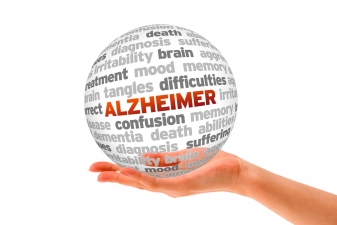My patient was holding his own in life thanks to his tremendously versatile brain, which continued to be mostly resilient to the Alzheimer's disease pathology. I told him he had mostly asymptomatic Alzheimer's disease. However, the lay narrative of Alzheimer's disease is unvarying and grim, and I worried that my patient would succumb to its nightmarish predictions.
I needed him to understand that an individualized approach is key to diagnosing, treating, and living fully with Alzheimer's disease. For example, you could sit through dinner with another patient of mine, diagnosed with near identical spinal fluid analysis over a decade ago, discuss Yeats, Sinatra, yesterday's news and today's stocks, and leave thinking, "He has Alzheimer's? No way!"
This disconnect between pathology and clinical symptoms is a confusing conundrum not only for patients like this attorney, but also their physicians like myself. In a recent study of over 5,000 American adults between age 60 and 89 years published in JAMA Neurology, there were significantly more people with biologically defined Alzheimer's, with plaques and tangles visualized on brain-tracer scans, than there were people with clinical Alzheimer's disease, exhibiting symptoms.
Among 85-year-olds, for every three people with the pathology, only one person had symptoms. In other words, most men and women with biologically defined Alzheimer's had no symptoms. And with 40% of 80-plus-year-olds having plaques without symptoms, yet 25-50% of elders complaining of memory loss, determining what's normal and what's Alzheimer's is a difficult feat.
For one thing, the clinical diagnosis of Alzheimer's disease hinges on functioning, which depends on performance expectations, varying from a seated Supreme Court Justice to a retired postal employee. The expectation each of us has of our memory and cognitive function is based on our specific set of circumstances, so context cannot be ignored when evaluating cognitive deficits.
To confound matters, even the assumption that plaques and tangles cause the symptoms of Alzheimer's is now being questioned. Amyloid plaques are starch-like deposits found outside nerve cells, and neurofibrillary tangles are hair-like clumps found inside nerve cells, and the traditional thinking was that these deposits led to nerve cell death and ultimately, symptoms of Alzheimer's.
It is becoming clear that the association between such pathology and symptoms vary from person to person. Many factors affect the progression to Alzheimer's, in addition to genetics, including cognitive and physiological factors, and the areas of the brain that are affected. These factors are so influential that even in identical twins, symptom onset of Alzheimer's disease can vary by as many as 18 years.
Furthermore, as I detail in a New England Journal of Medicine article, professionals, including physicians, can function competently even with clinical symptoms of Alzheimer's disease. Just as each brain is unique, so is the disease progression and continued functioning of people with Alzheimer's. Variability in the disease's course is the norm, with some people staying stable for years, even without treatment. Yet, while we know that two people with the same type of kidney disease or breast cancer progress differently, with Alzheimer's disease the overwhelming belief is that everyone ends up in a wheelchair, unable to recognize family and themselves.. While this is true in some, it is not the case for all.




